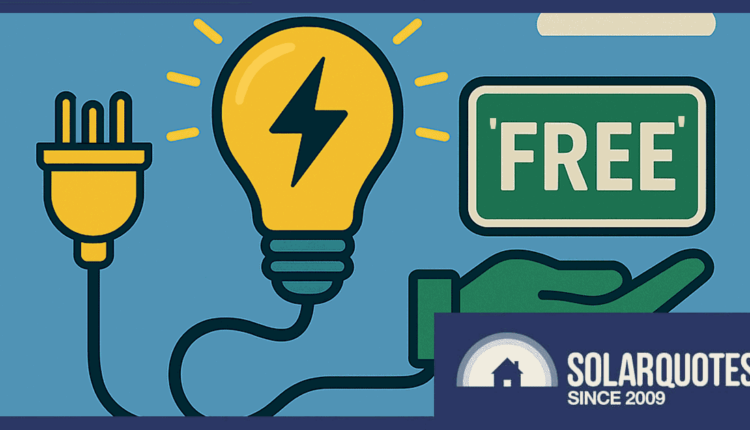Free electricity for everyone? Not quite: Solar Sharer explained
The federal government will soon require electricity retailers to offer households free electricity for at least three hours a day as part of the so-called Solar Sharer Offer (SSO).
How does the solar sharer electricity offer work?
As announced by Climate Change and Energy Minister Chris Bowen, the Solar Sharer Offer will require retailers to have a standing time-of-use (ToU) electricity plan, which provides households with free electricity for at least three hours in the middle of the day.
It is called the “Solar Sharer” because this is the period during the day when solar energy exports to the grid peak; largely thanks to the more than 4 million roofs across Australia with solar panels. As a result, wholesale prices for electricity are generally very cheap during this time and are increasingly moving into the negative price range at times.
Percentage of wholesale electricity prices below 0 MWh and above 300 MWh. Source: Solar Sharer Offer (SSO)
Consultation paper 2025-26
The SSO is expected to be rolled out in July next year in three Default Market Offer (DMO) regulated states – New South Wales, South-East Queensland and South Australia; with the aim of expanding it across Australia in 2027.
Customers signing up for the Solar Sharer offer will need a smart meter; and to truly benefit from it, you must be willing and able to shift a reasonable portion of your electricity usage to the window in which it is offered; e.g. 11 a.m. – 2 p.m.
The issues in detail that still need to be clarified are other aspects of the SSO, such as: B. the utility fees, the free hour window and the additional tariffs.
Some electricity traders have already introduced market offers with “free” electricity. AGL is an example, and the utility and usage fees for the Three For Free plan are higher than the Smart Saver, which has no free hours.
These free hour market offers may continue, however the Solar Sharer offer serves as a guide price.
What is this “Standing Offer” and “Standard Market Offer” Bizzo?
A standing offer is a type of electricity contract that a customer receives if, for some reason, they do not opt for a market offer. A Default Market Offer (DMO) is the maximum price that energy retailers can charge for these standing offer contracts. It is intended to serve as a safety net to prevent customers from being charged excessive prices on standing offers.
NSW, SEQ and SA are DMO regulated regions, with the standard market offering overseen by the Australian Energy Regulator. In other states, other regulations apply, which are regulated by state authorities. For example, Victoria has the Victorian Default Offer (VDO), which is administered by that state’s Essential Services Commission (ESC).
The DMO price also acts as a reference price against which market offers are compared. While a minority of private electricity customers use standing offers (approx. 8%), these offers also form the framework for the pricing of market plans. When the DMO price rises or falls, market plans usually follow.
Solar Sharer is part of the government’s wider reform process for standard market offerings.
“Reforming the DMO will remove unnecessary costs and extend protection to all existing and small customers on embedded networks, including renters and apartment residents,” said Minister Bowen.
More comprehensive SSO benefits
The Albanian government says Solar Sharer will reduce electricity costs across the board by reducing peak demand in the evening hours as customers shift more of their consumption to the free electricity window.
“A lower evening peak impacts flow throughout the system, minimizing expensive peak electricity prices and reducing the need for costly grid upgrades and interventions to ensure grid stability,” the announcement said.
The SSO will also provide some of the financial benefits of a system to households without solar panels. While they are required to have a smart meter, by 2030 all customers in NEM jurisdictions should have smart meters.
A blessing for home battery owners?
Solar battery owners might find their mouths watering at the thought of getting three free hours of electricity a day to charge their energy storage systems for nothing; especially on days with little sunshine/no sunshine. And because of the Cheaper Home Batteries program, there are certainly a lot more battery owners now than there were a few months ago. Since the start, around 108,000 systems have been installed and put into operation, and the trend is rising.
For some households considering a home battery, it may be tempting to purchase a really large storage system to take advantage of free hours. and perhaps forgo installing solar panels altogether. These approaches may not work. And here too, other important details of the solar sharer offer still need to be clarified.
Electricity retailers were caught off guard
The announcement came as a surprise to many, including electricity traders. The peak body representing these companies, the Australian Energy Council (AEC), was unhappy with the government’s failure to consult on its solar sharer program.
“This lack of consultation risks damaging industry confidence and potentially creating unintended consequences,” AEC Chief Executive Officer Louisa Kinnear said yesterday.
Unintended consequences such as a potential increase in electricity prices outside the free hour window (including evening peak hours) and further erosion of feed-in tariffs are legitimate concerns as the costs of the SSO still need to be borne somewhere.
The AEC (and everyone else) now has the opportunity to express their opinion on the solar sharing offer as part of a consultation that has just begun. The Federal Government is seeking feedback on the draft SSO on the following topics:
- Tariff design.
- Impact on consumers.
- How the SSO will work with other reforms.
- Consumer risks.
- Opportunities and risks of implementation.
The draft consultation paper on the solar sharing offer can be viewed here. Feedback must be submitted by Friday 21 November 2025 5:00pm AEDT.



Comments are closed.